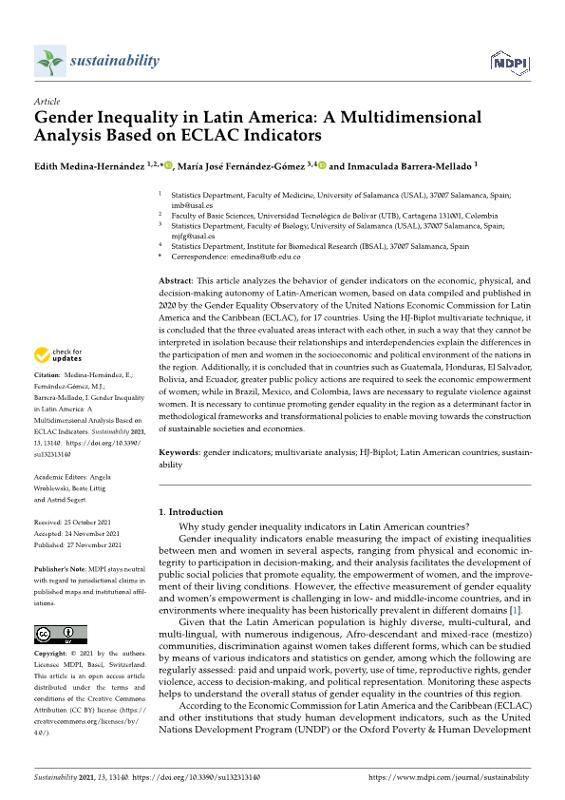Abstract
This article analyzes the behavior of gender indicators on the economic, physical, and
decision-making autonomy of Latin-American women, based on data compiled and published in 2020 by the Gender Equality Observatory of the United Nations Economic Commission for Latin America and the Caribbean (ECLAC), for 17 countries. Using the HJ-Biplot multivariate technique, it is concluded that the three evaluated areas interact with each other, in such a way that they cannot be interpreted in isolation because their relationships and interdependencies explain the differences in the participation of men and women in the socioeconomic and political environment of the nations in the region. Additionally, it is concluded that in countries such as Guatemala, Honduras, El Salvador,
Bolivia, and Ecuador, greater public policy actions are required to seek the economic empowerment of women; while in Brazil, Mexico, and Colombia, laws are necessary to regulate violence against women. It is necessary to continue promoting gender equality in the region as a determinant factor in methodological frameworks and transformational policies to enable moving towards the construction of sustainable societies and economies.














